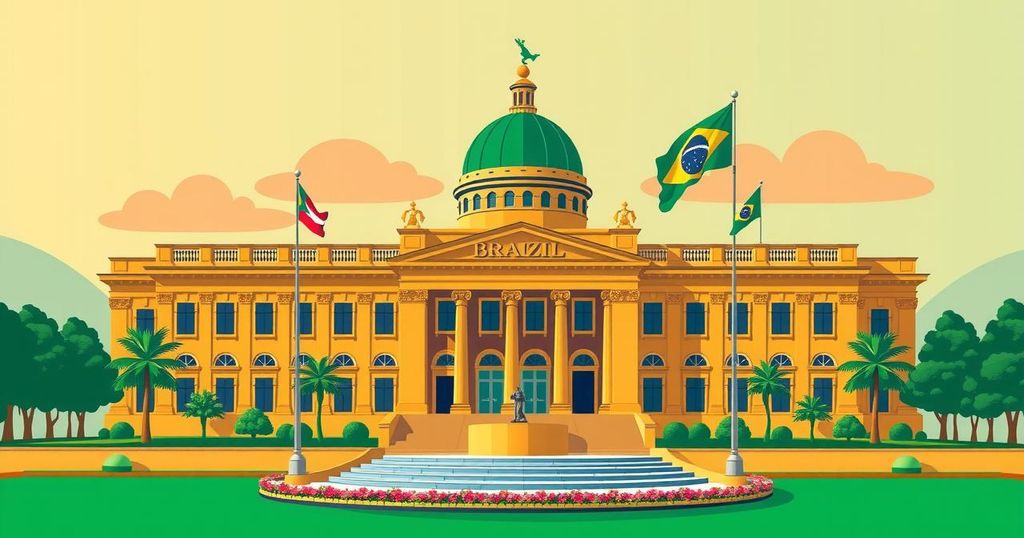Politics
ASIA, BRAZIL, CANADA, DONALD TRUMP, FOREIGN MINISTRY, GEOPOLITICS, HOUSE OF REPRESENTATIVES, JAIR BOLSONARO, JAPAN, LATIN AMERICA, LINDBERGH FARIAS, LUIZ INACIO LULA DA SILVA, MONEY LAUNDERING, NATIONAL SECURITY, NORTH AMERICA, SOUTH AMERICA, TOKYO, TRADE RELATIONS, TRUMP, U. S, UNITED STATES, WORLD TRADE ORGANIZATION
Nia Simpson
Brazil Congress Enacts Law in Response to U.S. Trade Tariffs
Brazil’s Congress approved the “Economic Reciprocity Law” to respond to U.S. tariffs set by President Trump on April 2, 2025. The law enables countermeasures to protect Brazilian trade interests, reflecting a strong commitment to reciprocity in international commerce amid political unity in a polarized environment.
On April 2, 2025, Brazil’s Congress enacted the “Economic Reciprocity Law,” enabling the executive branch to counteract trade barriers, particularly in response to a 10% tariff imposed by U.S. President Donald Trump on Brazilian exports. The House of Representatives passed the law unanimously after it received approval from the Senate the previous day.
In a statement, Brazil’s Foreign Ministry expressed regret over the newly announced tariffs from President Trump, indicating the country is exploring all possible responses to ensure equitable trade relations, potentially invoking the World Trade Organization for support.
Brazil is a major steel exporter to the United States, ranking second behind Canada, and exported approximately four million tonnes in 2024. President Luiz Inacio Lula da Silva emphasized that the nation cannot remain passive in light of these tariffs while highlighting Brazil’s reliance on steel-based imports from the U.S., including machinery and aerospace components.
Senior lawmaker Lindbergh Farias clarified that the term “reciprocity” in the law’s title does not strictly imply retaliation but serves as a tool for the government in negotiations with the U.S. The legislation allows the government to implement “countermeasures” against actions that adversely affect Brazilian competitiveness in international markets.
Under this law, potential actions could involve suspending trade concessions and investments, as well as intellectual property agreements, with the authority resting with the Chamber of Foreign Trade, an organization associated with the Presidency. The bipartisan support for this law represents a rare moment of unity in Brazil’s politically divided landscape, even receiving backing from the party of former President Jair Bolsonaro.
In summary, Brazil’s unanimous passing of the “Economic Reciprocity Law” empowers the government to respond to U.S. trade barriers, particularly in light of Trump’s steel tariffs. The Brazilian government is committed to ensuring fair trade practices and is prepared to take necessary countermeasures while seeking unity amid political divides. This legislation highlights Brazil’s significant role in steel exports and its strategic economic relationships.
Original Source: www.thehindu.com








Post Comment